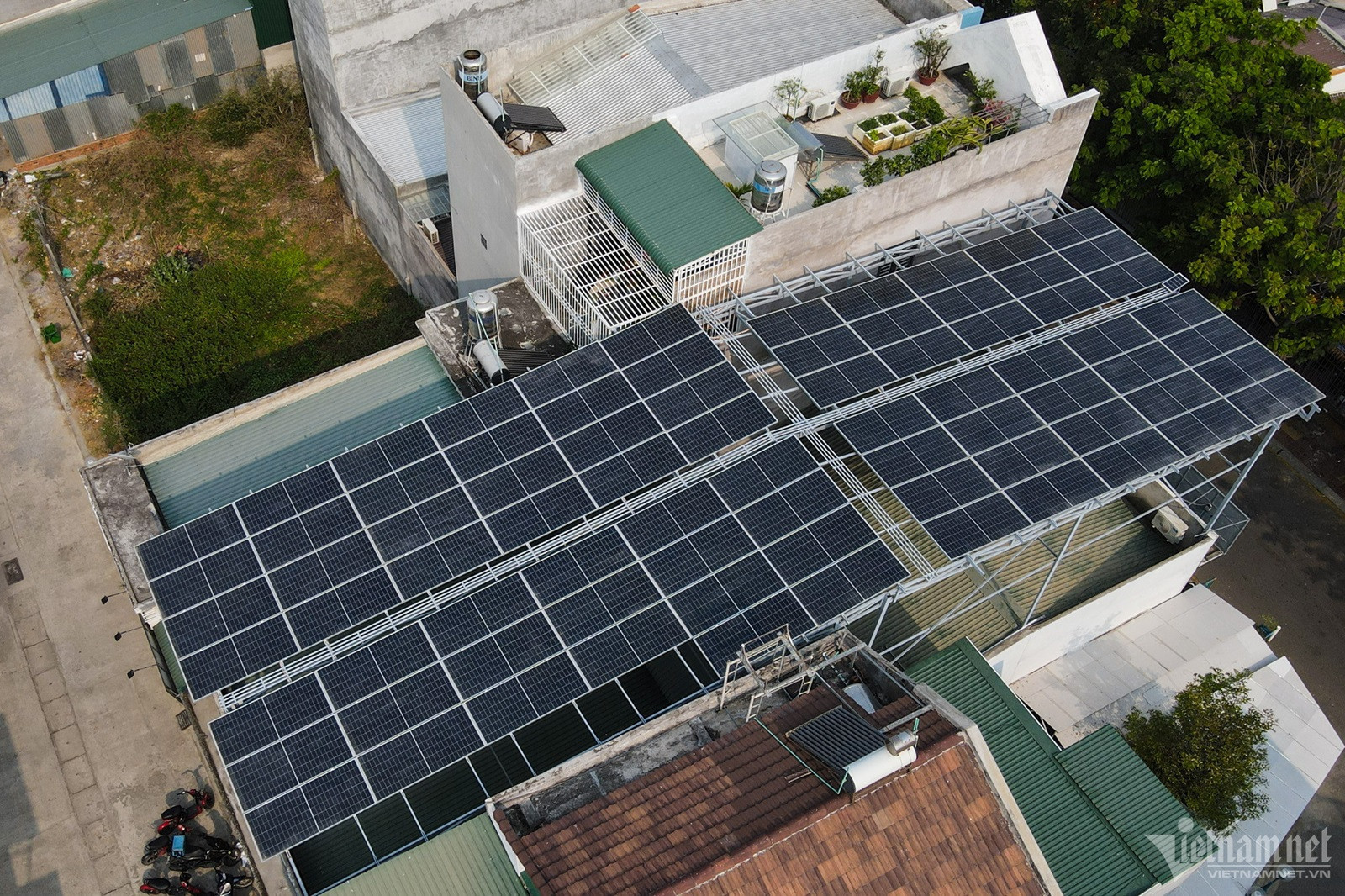
VietNamNet recently talked with Le Hai Hung, PhD, head of the Institute of Research and Application of Technology (IRAT), former lecturer at the Hanoi University of Science and Technology, about the approach to the development of self-sufficient rooftop solar power as well as the future of the renewable power industry.
What would you say about the mechanisms to encourage the development of self-sufficient rooftop solar power that the ministries are designing?
I think that we are still puzzled about the issue and we still cannot find a way for rooftop solar power. Authorities should have been ‘one step ahead’ and guided how to develop rooftop solar power, but in fact, they are beyond development and have to settle the consequences of the rooftop solar power crisis.
If you keep watching over the moves taken by management agencies and analyzing the proposals by the Ministry of Industry and Trade (MOIT) over the last year, you would see contradictory views.
At first, MOIT attempted to not allow rooftop solar power systems’ owners to provide excess electricity to the national grid. Later, as the public raised its opposition to the plan, the ministry changed its mind and allowed to ‘sell’ excess electricity to the national grid, but at zero dong.
In an effort to calm the public down, on July 12, 2024, MOIT proposed allowing rooftop solar power systems’ owners to sell a part of their electricity output to the national grid at certain hours at the price of VND671 per kwh.
Honestly speaking, I cannot understand what is the basis for MOIT to give such a figure.
To date, people and businesses still don’t know which document is the final legal document about rooftop solar power.
How do you think we should deal with self-sufficient rooftop solar power, especially when this is included in the draft law on electricity?
On August 5, 2024, I had the chance to make a presentation at a workshop on offering suggestions to the draft law on electricity (amended).
The draft law attaches much importance to the development of renewable energy, which comes in line with the spirit of the eighth national power development plan (Plan 8).
When mentioning the development of renewables, especially self-sufficient solar power development among households, many attendees at the workshop commented that the drafted provisions are not connected enough. This shows that the compilation committee stays puzzled about the approach to the development of rooftop solar power.
The limitations imposed on households’ rooftop solar power capacity are unreasonable. The tentative regulation that rooftop solar power systems’ owners cannot sell electricity to other households is also unreasonable and even violates current laws on trade.
The spirit of Plan 8 is strengthening the development of renewables, so the restrictions on rooftop solar power development is contrary to the plan.
We are witnessing a solar power boom. We cannot and should not invest too much money to expand the electricity transmission network just to use up rooftop solar power capacity. The measures to deal with excessive rooftop power are just temporary solutions, not long-term strategies.
I have to say that the above mentioned problems are not the ‘fault’ of solar power. The problem lies in our limited resources. Therefore, in the current special period, the issue of self-sufficient rooftop solar power development should not be included in a law, but in other legal documents.
MOIT has drafted a report on amending Plan 8, planning to add some provisions on increasing solar power capacity. What are your comments about this?
In general, the time when solar power is generated doesn’t coincide with the time of use. In the morning, when people need electricity, there is no sunlight to generate electricity. When people leave home for the office, the power system generates a lot of electricity as the sun rises.
I heard recently that MOIT plans to allow sales of 100 percent of rooftop solar power from stored batteries. I think MOIT may know that in the time to come, the power output from batteries will be very small, because the batteries are very expensive.
However, if batteries are so cheap that every household can use batteries to store electricity and use electricity when necessary, there might be a crisis of electricity from batteries.
Therefore, while developing solar power, we should also consider solutions to heighten use efficiency, such as power storage technology.
Tam An - Luong Bang